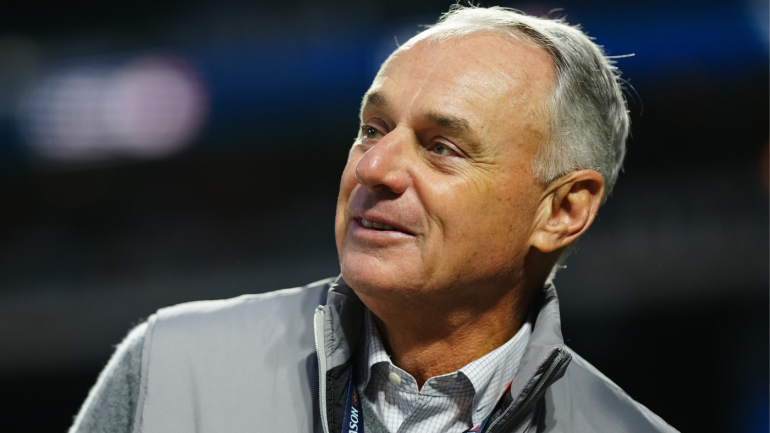
Last week, a report surfaced indicating that Chicago White Sox owner Jerry Reinsdorf was "open to selling" the franchise and was engaged in "active discussions" with a group of prospective buyers that included former All-Star pitcher Dave Stewart. That last part was particularly notable given that Stewart has spent the last several years focused on bringing a Major League Baseball team to Nashville.
It was only natural, then, to draw a line between Stewart's group attempting to buy the White Sox and the possibility that the team would then relocate to Nashville.
MLB commissioner Rob Manfred, making the media rounds this week ahead of Friday's Game 1 of the World Series, was asked about the White Sox's future location during an appearance on FS1's Breakfast Ball on Wednesday. Manfred, for his part, seemed to play down the possibility that the White Sox would be on the move.
"Chicago is an anchor city for us," Manfred said. "I think that the White Sox are in a difficult situation. I think the location of the stadium is tough, but I have confidence that things are going to work out in Chicago and that we're going to continue to have two teams in Chicago."
Of course, you don't have to squint to see where this whole thing is leading; the endgame here is a new stadium, be it in Chicago (where the White Sox are already looking at a new location closer to downtown) or elsewhere. Reinsdorf has done this song and dance before, using a relocation threat to Tampa Bay to secure a new stadium back in the day. (As we noted a few months back, relocation threats are almost always used for this exact scenario.) Heck, he's already laid the foundation for this spin.
"When I'm gone, (Reinsdorf's son Michael) will have an obligation to do what's best (for the other investors)," Reinsdorf said back in February. "That likely means putting the team up for sale … The team will be worth more out of town."
How, precisely, this ends is to be determined. But if you're Manfred or MLB, you have every reason to want to keep the team in one of the handful of largest media markets in the country -- especially if you can secure a new stadium along the way.


















